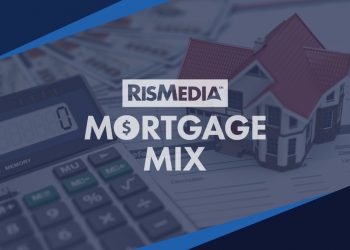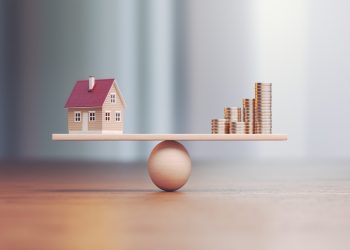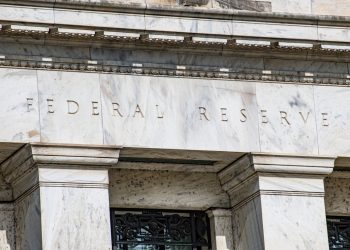The 2016 presidential election has caused quite a stir throughout the nation, and when the Republican and Democratic conventions are held, all of the campaign rhetoric, media blitzes and impassioned arguments on both sides of the political spectrum will likely make people even more nervous about the future of the country—as well as the health of the American economy and real estate market.
“Like any investment, real estate is susceptible to short-term uncertainties, including the upcoming election,” says Scott Gibson, president and chief executive officer of Los Angeles-based Gibson International. “With this, people sometimes halt any big decisions or changes in their investments—but that isn’t always the best option.”
Specifically, on one side, many people are concerned that Donald Trump’s brand of politics could provoke an international incident and/or derail the system of global trade that has endured for the past 40-plus years. Meanwhile, on the other side, Hillary Clinton’s critics have expressed concerns about her ethics and ties to the investment banking industry, which could lead to another market meltdown similar to the one that recently triggered the Great Recession.
Adding fuel to all of this political fire is an evolving media landscape that some brokers say is not exactly helping the situation—at least in terms of promoting a stable economic environment like the one that is supported by most of the key economic data points of the past year (i.e., inflation, employment and gross domestic product).
“Every news organization is desperate to get their ratings up,” says Leonard Steinberg, president of Compass, a luxury real estate brokerage with offices in New York City, Los Angeles, Washington, D.C., Boston, Miami and the Hamptons. “Unfortunately, these scandalous headlines and salacious news stories steal (from) a whole host of headlines that are calming.”
According to Steinberg, the result is millions of Americans who don’t know if now is a good time to buy real estate. This is particularly true in the luxury markets.
“The wealthy consumer is always about confidence,” Steinberg explains. “In the luxury markets, homes are not always a product of need as much as they are a product of desire and want. In the areas of luxury, some buyers have been put back into check due to the uncertainty.”
Therefore, a luxury buyer can afford to wait and see how the market is trending in the long-term, before pulling the trigger on a particular valuation. Voters who believe a “President Clinton” or “President Trump” would destabilize the economy are choosing to wait a year before buying that $10-million house in the Hamptons, in order to gauge if that worst-case scenario actually comes to fruition.
Neither Trump nor Clinton have come out against anything specific to the real estate industry, such as abolishing the mortgage interest deduction, and the latest policy hints from Washington, D.C., have been favorable to the industry, including no rush to increase interest rates from the Federal Reserve and the recently discussed loosening of FHA financing requirements for condominium buyers.
Kimberly Dawson, a broker at Coldwell Banker Advantage in Chapel Hill, N.C., and president of the North Carolina Association of REALTORS®, who attended the National Association of REALTORS® mid-year conference in Washington, D.C., in May, says that changes within the U.S. Department of Housing and Urban Development would be good for the market and not likely to be opposed by the new administration, regardless of what party takes control of the White House.
“It’s important for first-time homebuyers to be able to attain financing,” Dawson says.
She adds that inventory is the critical issue that drives the real estate market in her region, particularly for homes that are listed for $500,000 or less. For homes over $600,000, there are fewer buyers and sellers, possibly because some are waiting to see what happens with the election.
Many of these people are hesitant due to what they’ve seen on the news or through social media. All of these fears—even if the worst fears about the candidates turn out to be true—will very likely not have an impact on the driving forces of real estate, brokers say. The housing-related policies are not at much risk despite all the scary headlines about this year’s election. At the end of the day, the principles of supply and demand, as well as regional inflation rates, are still going to be the overriding factors in property valuation.
Meanwhile, the upper end of most regional markets—ranging from Southern California to the Tri-State Area and most places in between, including Dawson’s Triangle region of North Carolina—are slowing down as buyers become nervous. Steinberg says this could be an opportunity for brokers to get discounts.
“In this era of uncertainty, we want to make sure we aren’t overpaying for real estate,” says Steinberg. “You have to focus on quality, look at real estate for the long-term and try to get a discount for the uncertainty.”
Eventually, Steinberg predicts, the uncertainty will settle no matter who wins—it will be difficult to accomplish some of the radical agendas that have been championed on the campaign trail.
“One thing that’s certain for presidents is that it’s difficult to deliver on their promises,” Steinberg says. “Congress still has to pass their agenda, and that’s what drives the reality of the situation.”
Andrew King is an award-winning journalist with 15 years of experience with the Gannett newspaper company, appearing in The Journal News (Westchester, NY), Asbury Park Press and USA Today. He also contributes to The Real Deal, TheLadders.com and TechPageOne.com.











